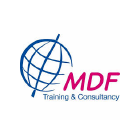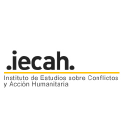WORKING WITH DG ECHO AS AN INTERNATIONAL ORGANISATION | 2014 - 2020
11. DEROGATIONS
1. General information
2. Humanitarian organisation in the area
3. Needs assessment and beneficiaries
4. Logic of intervention
5. Quality markers
6. Implementation
7. Coordination
8. Monitoring and evaluation
9. Visibility
10. Financial overview of the action
11. Request for derogation
12. Administrative information
13. Conclusions and humanitarian organisation’s comments
Logframe Overview
This section will be used by the partner to request the inclusion of provisions derogating from or supplementing the rules governing the Agreement.
These requests, if accepted by ECHO, will be included in Article 6 of the Specific Grant Agreement (NGOs) and IMDA (IOs and UN).
When requesting derogation or a supplementing clause, the partner will be as precise as possible about the nature of the request and will briefly explain the reasons for this request.
Examples of the most frequent derogations requested by the partners:
-
Exchange rate: request from a partner in a non-Euro zone to use a different exchange rate (non applicable to IOs and UN).
-
External audit: request the authorisation to declare the cost of external audit where the latter is a pre-condition to work in the country.
-
Remaining supplies at the end of the Action: request to derogate to the transfer or donation of remaining supplies.
-
Visibility: request to derogate from visibility obligations when circumstances in the field require.
ECHO may also include derogation in Article 6 of the Specific Grant Agreement / IMDA. In most cases, these articles will concern:
-
Derogation to the rules of nationality and origin for Actions financed by the European Development fund (EDF).
-
or:
-
Request to provide additional information to be submitted in the course of the Action. (e.g. specific operational information, Terms of reference for evaluations, etc)
-
Designation of the Action as an urgent action.






